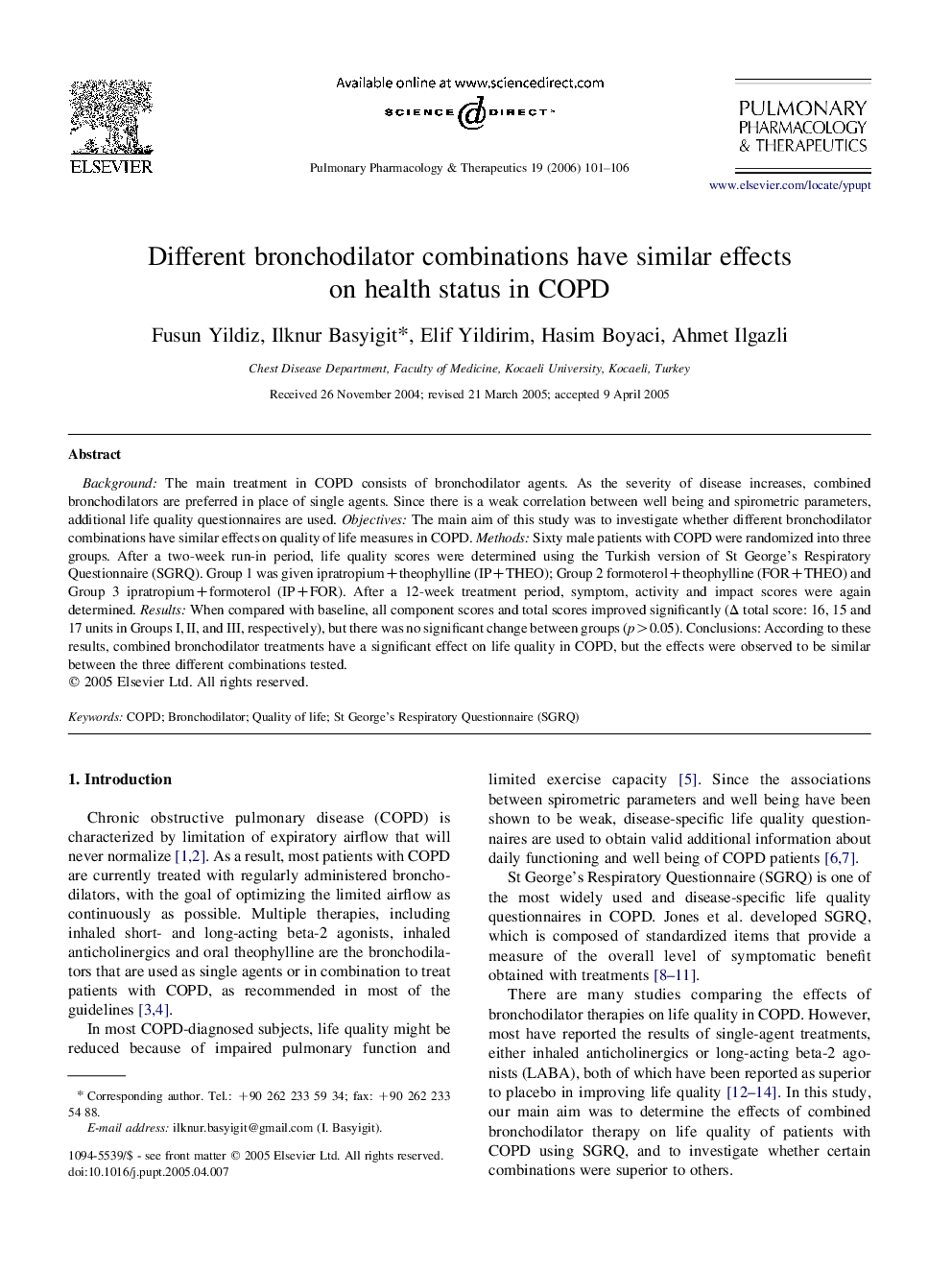| Article ID | Journal | Published Year | Pages | File Type |
|---|---|---|---|---|
| 2567846 | Pulmonary Pharmacology & Therapeutics | 2006 | 6 Pages |
Background: The main treatment in COPD consists of bronchodilator agents. As the severity of disease increases, combined bronchodilators are preferred in place of single agents. Since there is a weak correlation between well being and spirometric parameters, additional life quality questionnaires are used. Objectives: The main aim of this study was to investigate whether different bronchodilator combinations have similar effects on quality of life measures in COPD. Methods: Sixty male patients with COPD were randomized into three groups. After a two-week run-in period, life quality scores were determined using the Turkish version of St George's Respiratory Questionnaire (SGRQ). Group 1 was given ipratropium+theophylline (IP+THEO); Group 2 formoterol+theophylline (FOR+THEO) and Group 3 ipratropium+formoterol (IP+FOR). After a 12-week treatment period, symptom, activity and impact scores were again determined. Results: When compared with baseline, all component scores and total scores improved significantly (Δ total score: 16, 15 and 17 units in Groups I, II, and III, respectively), but there was no significant change between groups (p>0.05). Conclusions: According to these results, combined bronchodilator treatments have a significant effect on life quality in COPD, but the effects were observed to be similar between the three different combinations tested.
